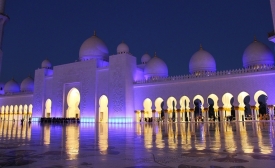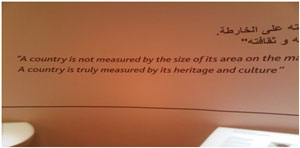Middle East


During the street demonstrations in Tunis, amidst the signs demanding “Ben Ali Out” were placards saying “Thank you, Al Jazeera.”
“Hope” is the first lesson the Arab street is learning through the Tunisian experience. For decades, the Arab peoples have been depressed, felt helpless and had to live with the injustices, the failures and repressions of their post-colonial states. For the first time, an Arab people, Tunisians, have won against one of their regimes. The event had an echo among all Arab peoples. Many of them felt this strengthened their trust in themselves and their hope in the future.
DOHA --- Money is a wonderful thing. Qatar has plenty of it and is putting it to use in its expanded public diplomacy. With wealth rather than weaponry, Qatar is becoming a new kind of superpower.
Jordanian and Palestinian social network activists were busy this past weekend exchanging videos, pictures, and comments on the clashes following a local match in Amman on Friday evening. The match was between Al-Wehdat and Al-Faisali clubs. The players of the first club are made up, mainly, of Jordanians who are from a Palestinian origin, and the latter represents the originally Jordanian national team.
I attended the closing session of the Gulf Cooperation Councils (GCC) Summit in Abu Dhabi this year. As all the delegates arrived and were seated I would estimate at least a total of 60 people, I could not help but observe, from all the government delegations present, we were 10 women in attendance as part of these delegations. A clear reminder of the gender gap in our region.
The latest round of WikiLeaks carried some bad news for Qatari public diplomacy, in the form of US embassy cables stating that the Qatari government is using Al Jazeera as a political bargaining tool.
Last semester, I had planned to do a research project on the public diplomacy of the Kurds and Palestinians. A while back, during the snowpocalypse that was blanketing the nation’s capital, I made my way back east to work on the aforementioned project.







